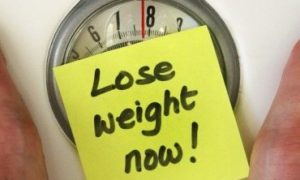With our fast-paced lifestyles and convenient, tasty food choices on every corner, eating right can be a challenge in today’s America. Unfortunately, our poor eating habits are making us increasingly prone to health problems including obesity, heart disease, diabetes and even certain cancers. No one is expected to eat healthy 100 percent of the time, but in order stay trim and in good health, health officials recommend following a plant-based diet most of the time and steering clear of unhealthy ingredients such as saturated and trans fats, sugar, salt, and harmful chemicals. Here’s a cheat sheet of the least-healthy American foods that you should do your best to avoid or only enjoy on a very occasional basis.
1. Bacon
There’s no doubt that America has a love affair with bacon. Sadly, it’s one of those “toxic” sort of relationships. Along with artery-clogging saturated fat, processed meats such as bacon (as well as ham, hot dogs, lunch meats, sausage, etc.) contain a substance called sodium nitrite. While sodium nitrite isn’t necessarily unhealthy in and of itself, the nitrites in processed meat may be converted to a known carcinogen, nitrosamine, in the gastrointestinal tract or during cooking. Of popular processed meats, bacon is considered to have the most cancer-causing potential because the high temperatures commonly used to cook bacon are conducive to the formation of nitrosamine. While it’s probably OK to eat bacon every once in a great while, make sure you cook it at a temperature of less than 350 degrees Fahrenheit—the temperature threshold at which nitrosamines have formed in controlled experiments.
2. French Fries
The United States is the birthplace of fast food. But like Frankenstein, our own invention has turned on us. In addition to blood pressure-raising salt, fast food is a major source of deadly trans fat, which increases risk of heart disease by increasing levels of “bad” (LDL) cholesterol and decreasing levels of “good” (HDL) cholesterol. Fast food french fries, in particular, are especially high in trans fat, as they are typically fried in partially hydrogenated vegetable oil. A typical medium-sized order of fast food french fries contains a whopping 14.5 grams of trans fat (health officials including the American Heart Association recommend consuming no more than 2 grams of trans fat per day). Other deep-fried fast food snacks like onion rings, fish and chips, and fried chicken strips are also laden with trans fat.
3. Charred Steak
Although barbequing is an American pastime that we’re not likely to give up any time soon, it’s important to choose lean cuts whenever possible and to make sure you’re not overcooking your meat. Like bacon, fatty cuts of red meat such as steak are high in heart disease-promoting saturated fat and can also form carcinogenic compounds when cooked at high temperatures. A study of over half a million people published in the Archives of Internal Medicine in 2009 found that people who ate red meat every day had an increased risk of dying over a ten year period, mostly because of heart disease or cancer, compared to people who ate less red meat. Moreover, charred meat contains certain chemicals, including heterocyclic amines, which have been linked to increased cancer risk. So if you do occasionally grill red meat, try not to char it.
4. Soda
Soda is the number one source of added sugar in the American diet. Added sugars may cause obesity, diabetes, tooth decay and increased triglyceride levels that may lead to heart disease. Soda is an especially unhealthy source of added sugar because it provides no redeeming nutrients. Soft drinks also contain a lot of artificial dyes and chemicals that some research suggests may contribute to hyperactivity in children and other health problems. Although diet soda doesn’t contain sugar, keep in mind that it may still harm your health because of its artificial ingredient content. Some studies indicate that the artificial sweeteners in diet soda may contribute to obesity because they “trick” your metabolism and make you crave sweets the same way real sugar does. The next time you crave a sugary drink, try a little bit of 100 percent juice—you’ll still get your sugar fix, but without consuming anything artificial. You’ll also get some healthy vitamins and antioxidants, to boot.
5. Packaged Snack Foods
Just because you bought a snack at the grocery store instead of the fast food drive-through doesn’t mean it’s healthy. To give cookies, chips, cake mixes and other packaged foods a long shelf life and pleasant taste, these foods are often loaded with trans fat (partially-hydrogenated oil is resistant to spoilage), salt, sugar, and artificial preservatives. Since they’re typically made from processed grains, most supermarket and convenience store snacks are also high in simple carbohydrates, which raise your blood sugar and contribute to weight gain. Fortunately, most supermarkets also offer some healthy snack options, like fruit, yogurt and lightly-sweetened whole grain products, so it should be easy enough to steer clear of the frozen pie aisle. If you’re not sure whether a snack is healthy or not, check the label. Some bad ingredients to watch out for include: high fructose corn syrup, partially-hydrogenated oil, sodium (your daily intake shouldn’t exceed 2,300 mg), enriched flour, and monosodium glutamate (MSG).





